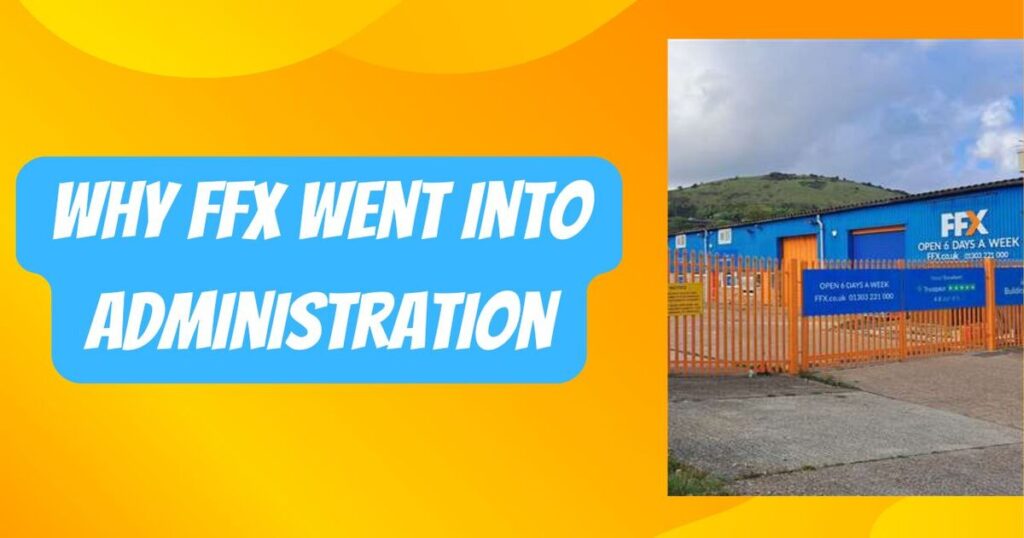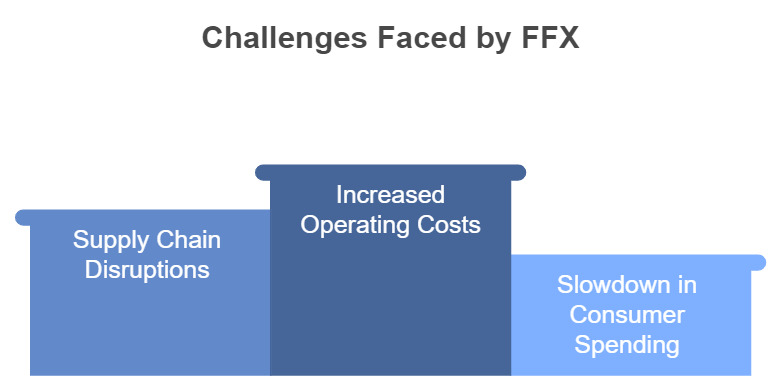Why FFX Went Into Administration: Understanding the Downfall

Folkestone Fixings Limited (FFX), a well-known name in the power tools and hardware industry, has officially gone into administration, resulting in the immediate redundancy of 147 employees across its operations in Kent. This development raises significant questions about the factors that led to the company’s downfall, especially considering its history of growth and innovation.
Post-COVID Struggles and Profitability Challenges
While FFX experienced strong sales growth during the COVID-19 pandemic, with its revenue increasing from £79.5 million in FY20 to £98.5 million in FY22, the company struggled to maintain profitability in the years that followed. According to the latest available accounts, for the year ending in September 2023, FFX recorded an adjusted EBITDA of just £1.49 million, a sharp 60.3% decline from the previous year. This deterioration in margins, despite solid revenue, highlighted the company’s ongoing struggle to stay profitable.
PwC, the appointed administrators, noted that FFX had faced “significant challenges in the business environment” post-pandemic, which included increased operating costs, supply chain disruptions, and the general slowdown in consumer spending. While FFX made several attempts to mitigate these issues—such as launching its own branded product range, improving working capital cycles, and reducing costs—it ultimately wasn’t enough to keep the business viable.

Why FFX Couldn’t Survive
FFX’s downfall was a combination of factors. Despite its substantial revenue, margin pressure became increasingly difficult to manage. The company’s strategy to launch its own brand and diversify its product range was an effort to improve profitability, but rising costs and a shift in consumer demand created challenges that FFX could not overcome.
The company also faced difficulties in maintaining cash flow. Reports indicate that FFX worked on developing a new website and expanding its drop-ship model to improve its market position, but these efforts did not yield the necessary financial returns to avoid administration.
The Role of Ownership and Leadership
FFX’s ownership by H2 Equity Partners since 2021 provided a platform for growth; however, the transition did not translate into lasting financial stability. The recent sale to H2 followed a management buyout (MBO) backed by Foresight Group in 2015, during which FFX had opened a new distribution centre and expanded its product range. Still, the change in ownership did not prevent the company from facing liquidity constraints.
As the administrators took control, they retained a small number of employees to help wind down operations, signalling the abrupt end of a business that had once been a significant player in the UK power tool market.
Industry Implications
The closure of FFX is not just a loss for its employees but also for the wider industry. With FFX now out of the picture, concerns loom over the potential ripple effect on smaller suppliers and businesses within the construction supply chain. The chief executive of Build UK expressed concerns that smaller firms might struggle to recover payments owed to them, heightening fears of further collapses in the sector.
Conclusion
While FFX was once recognised as one of the UK’s largest independent suppliers of tools and fixings, its journey reflects the harsh realities of a changing market landscape. The combination of declining profitability, operational challenges, and an inability to adapt to post-pandemic conditions culminated in its recent administration. As the industry watches closely, FFX’s story serves as a stark reminder of the fragility of even the most established businesses in turbulent economic times. Our hearts go out to the FFX employees and hope they find new roles soon. It is easy to see another business going to administration as faceless, but people’s life’s are seriously affected by such change. If you know someone at FFX, reach out and make sure to check in!

As a longstanding customer of FFX, although i did not spend thousands of pounds with them each year, they were my go to supplier for Wera, Makita and Milwaukee equipment.
From my point of view, I noticed a diminishing availability of Wera items during early 2020. When questioned about availability timelines, staff members did indicate that the progress in the Brexit decision seemed to be causing some stock issue.
This and and the upsurge in demand of equipment, due to pandemic restrictions, may well have contributed to the sad loss of a really good supplier.
May I wish all the best to those who have been affected by the loss of the company.
It’s was the same old story as FR Jones. Wafer thin margins in order to shift as many boxes as possible. One little thing can send a company like that into a death spiral.